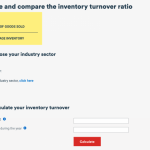
Cloud accounting is a web-based software that allows businesses to store their critical financial data on the cloud. The data can be accessed remotely from anywhere using a device with an internet connection. A cloud-based system like Xero accounting software is probably the best option businesses can choose for customized accounting services. It can be tailored to the specific accounting needs of your business.
Your entire office could burn down and the devices of every staff member could be lost or stolen—and you would still have access to all your data. Safely contained in the cloud, on multiple servers in multiple locations. You’ll be able to streamline collaboration (and save yourself a lot of headaches), while still keeping your data how to calculate loan payments with excel pmt function secure. Cloud accounting is essentially the next hot thing for companies looking to handle their money in a practical, effective, and secure manner. Internet banking is a great illustration to use here because, after some early reluctance, everyone has come around to it.
The Hackett Group® Recognizes HighRadius as a Digital World Class® Vendor
Cloud accounting refers to using online platforms to perform accounting tasks and manage financial data. It allows what is a journal entry sage advice us users to access their financial data from anywhere with an internet connection. Cloud accounting allows businesses to manage their finances in real-time, eliminating the need for on-premise software. Companies can benefit from real-time collaboration with accountants, finance teams, or external advisors, streamlining processes such as invoicing, payroll, and tax preparation. Cloud accounting refers to the practice of using internet-based software hosted on remote servers to manage financial transactions, accounting, and bookkeeping activities. Unlike traditional accounting software installed on a local system or computer, cloud accounting operates online.
Data Security
In addition, traditional accounting software requires you to support networks, servers, and workstations and can be a considerable expense in comparison to cloud computing. Personalized business dashboards that give each user an at-a-glance view of their most important metrics. Automated updates that bring in your most recent accounting information. The ability to add your own branding and company-specific terminology. These are just a few of the features you can expect to find when leveraging cloud accounting software. By keeping your bookkeeping and bank reconciliation up to date, you can achieve real-time reporting.
- For example, instead of paying for a year’s licence for thirty employees, you pay month by month for what you need on the cloud, allowing you to scale and customise your software.
- These platforms typically sync data once an internet connection is re-established.
- QuickBooks is an accounting software package designed for small and medium-sized businesses.
- Beyond automated fraud detection, you can analyse trends and patterns to find client opportunities and areas for growth.
- For example, you can enter your vendor information and set up a workflow that automatically pays that vendor on the same due date every month.
Automation leads to accuracy:
You can also automate sending out invoices to accrued income your recurring customers. They include accounting automation, data security, accurate and timely financial results, less administration, and customization. Yes, cloud accounting is a safe approach as the data is stored on the cloud. Hackers and other bad actors can never breach the walls of the cloud.
NetSuite ERP is a complete set of business software solutions bundled from Oracle. It is customizable and allows users to connect easily with third-party partners. Cloud-based accounting software is hosted online, so you don’t need to buy a program to install it on your computer.

Because isolated software doesn’t allow people to share data, it means they must send it via email, in files, or even physical copies. This exposes firms to far greater compliance risks than cloud accounting solutions. We’ve already covered some of the benefits of cloud software for your accounts by comparing traditional vs. cloud based accounting. There are so many features and functionalities empowered by cloud accounting that the list goes on. By migrating your practice to cloud accounting software, you’re enabling employees to access up-to-date accounts and data from anywhere with an internet connection, at any time.
Wolters Kluwer uses integration features within CCH iFirm to enable you to connect with banks, HMRC, and clients, through your online cloud software. In the cloud, there’s no need to install and run applications over a desktop computer. Yes, SAP, otherwise known as Statutory Accounting Principles, can be used in cloud-based accounting apps and software. SAP is the set of standard rules for accounting practices and financial statements — one of the common accounting languages.
